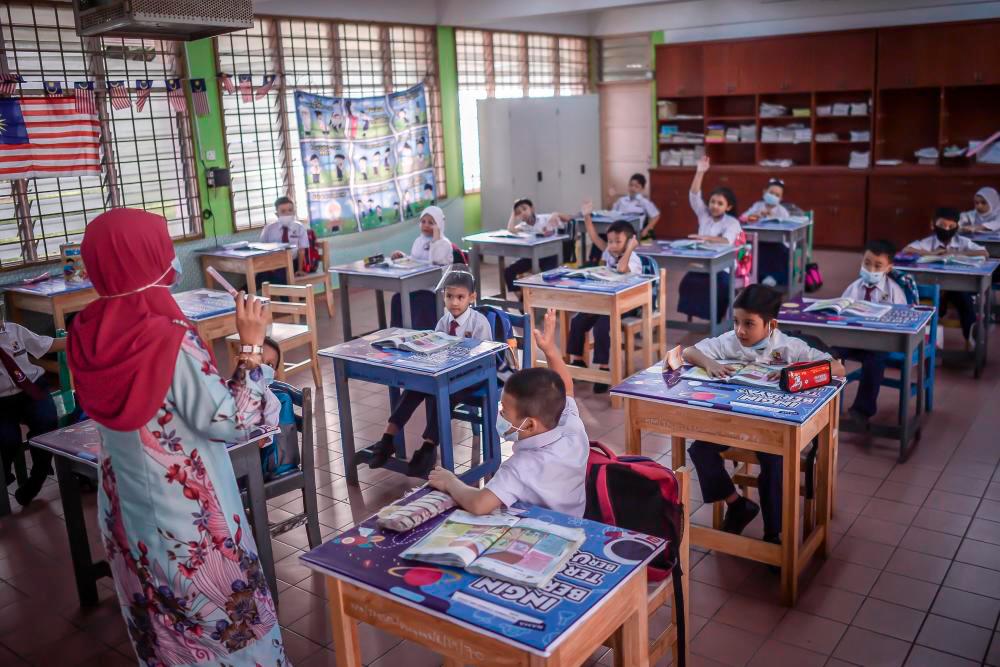
Published in AstroAwani, image by AstroAwani.
By right, there’re no legal impediments or obstacles of any sort for the Zionist State of Israel to be tried by the International Criminal Court (ICC) according to the Rome Statute – even as evidence of genocide has been mounting on a daily basis, notwithstanding the temporary “cessation of hostilities” or “ceasefire” for the initial four days that was then extended to another two days which altogether ran from between November 24 to November 30, 2023.
This is because according to the Rome Statute, when it comes to the “crime of aggression”, the ICC is competent to exercise its jurisdiction for violations that were committed in the territory of a State Party (see, “Understanding the International Criminal Court”, p. 26; see also, “Which international court should Malaysia take Israel to for genocide?”, Hafiz Hassan, Malay Mail, December 13, 2023).
According to Article of 8 bis(1) (in effect, a second Article 8 in addition to the pre-existing one), “crime of aggression” is defined as “the planning, preparation, initiation or execution, by a person in a position effectively to exercise control over or to direct the political or military action of a State, of an act of aggression which, by its character, gravity and scale … constitutes a manifest violation of the Charter of the United Nations (UN)”. Article 8 bis(2) further elaborates that “[an] act of aggression” means “the use of armed force by a State against the sovereignty, territorial integrity or political independence of another State … (or in any other manner inconsistent with the Charter of the [UN])”.
As of July 17, 2018, allegations of crime of aggression for which there’re grounds regarding their existence could be referred to the ICC by the United Nations Security Council (UNSC) acting under Chapter VII of the UN Charter, irrespective as to whether it involves State or non-State Parties, as in the nature of things (in rerum natura) since the matter involves one country acting against the other (and hence the crime of “aggression” as such).
Now, in the absence of a referral by the UNSC, the Chief/Lead Prosecutor of the ICC may still go ahead and commence investigation on his own initiative. Otherwise, the ICC can still exercise jurisdiction upon request from the State Party that has suffered the crime of aggression even though the aggressor isn’t a State Party as such.
In short, the ICC is legally well-poised to exercise its jurisdictional faculty and capacity over persons of concern who’re not nationals of a State Party so long as the definition and elements of the crime of aggression are satisfied.
Since April 1, 2015, the State of Palestine (Dawlat Filastin) is a State Party to the Rome Statute and thereby come under the jurisdiction of the ICC. In doing so, the State of Palestine effectively exercised its legal sovereignty (de jure) as a sovereign entity (notwithstanding the military constraints placed by Israel – de facto) when it lodged a declaration under Article 12(3) of the Rome Statute, so as to acknowledge the jurisdiction of the ICC over crimes of aggression committed in the Occupied Palestinian Territories, including East Jerusalem (since “June 13, 2014 onwards”).
On May 22, 2018, pursuant to Articles 13(a) and 14 of the Rome Statute, the State of Palestine called on the Lead/Chief Prosecutor “to investigate, in accordance with the temporal jurisdiction of the [ICC], past, ongoing and future crimes within the [ICC’s] jurisdiction, committed in all parts of the [Territories] of the State of Palestine”, specifying that “[t]he State of Palestine comprises the Palestinian [Territories] occupied in 1967 by Israel, as defined by the 1949 Armistice Line, [which] includes the West Bank, including East Jerusalem [as the permanent, irrevocable and eternal capital], and the Gaza Strip [as constituting one indivisible and unified sovereign entity]”.
Article 13(a) states that, “[the ICC] may exercise its jurisdiction with respect to a crime referred to in [A]rticle 5 [i.e., notwithstanding that Israel is a non-State Party] in accordance with the provisions of [the Rome] Statute if:
“A situation in which one or more of such crimes appears to have been committed is referred to the [Lead/Chief] Prosecutor by a State Party (i.e., the State of Palestine] in accordance with [A]rticle 14”.
Article 14(a) provides that “… [a] State Party may refer to the [Lead/Chief] Prosecutor a situation in which one or more crimes within the jurisdiction of the [ICC] appear to have been committed requesting the [him] to investigate the situation for the purpose of determining whether one or more specific persons should be charged with the commission of such crimes”.
This means that the Lead/Chief Prosecutor of the ICC Mr Karim A. A. Khan already has all the legal wherewithal and arsenal to investigate and charge or prosecute Prime Minister Benjamin Netanyahu and other individuals concerned (such as Defence Minister Yoav Gallant) with the crime of aggression as per Article 8 of the Rome Statute vis-à-vis the twinned phenomenon of genocide and collective punishment in Gaza at the present time.
At the same time, the State of Palestine should intensify the pressure on Israel and the US (as its number one backer – aider and abettor – and supporter) to submit to the jurisdiction of the ICC as part of ramping up the political and diplomatic opprobrium. By extension, this would highlight the fulfilment of the conditions under the other three categories under the jurisdiction of the ICC (as per Article 5), namely:
- genocide, as per Article 6;
- crimes against humanity, as per Article 7; and
- war crimes, as per Article 8.
In response to Hamas’s strategic penetration/infiltration, demonstration and provocation (which serves as rehearsal for a wider confrontation to mark the end of the Zionist entity’s occupation of the Palestinian Territories, including of East Jerusalem and blockade of the Gaza Strip and on-going desecration of the Al-Aqsa Mosque) on October 7, Israel has committed the following atrocities:-
- Internal displacement of 1.7 million Gazans (as per Article 7(2)(d) – “Deportation or forcible transfer of population” means “forced displacement of the persons concerned by expulsion or other coercive acts from the area in which they are lawfully present, without grounds permitted under international law” (as validated/confirmed by the UN Office for the Coordination of Humanitarian Affairs/OCHA);
- Nearly 20,000 Gazan Palestinians have been massacred by the Israeli Defense Forces (IDF), especially from the carnage and destruction unleashed by the aerial blitz, based on preliminary figures compiled by the Gaza Health Ministry from the bodies sent to the hospital morgues.
Latest data (as of December 11, 2023) from Euro-Meds Human Rights place the figures at 23,012.
This amounts to genocide, as per Article 6(a) (“[k]illing members of the group”) and a war crime, as per Article 8.
Article 8(2)(a) provides for the grave breaches of the Geneva Conventions of 1949, namely:
- Wilful killing;
- Wilfully causing great suffering, or serious injury to body or health; and
- Extensive destruction and appropriation of property, not justified by military necessity and carried out unlawfully and wantonly.
Article 8(2)(b) is unequivocal that the following, by default, satisfies the element of a war crime:
- Attacking civilian population (or against civilians not taking part in hostilities);
- Intentionally directing attacks against objects which are not military objectives;
- Intentionally directing attacks against personnel, installations, material, units or vehicles involved in a humanitarian assistance or peacekeeping mission in accordance with the Charter of the UN;
- Intentionally launching an attack in the knowledge that such attack will cause incidental loss of life or injury to civilians or damage to civilian objects or widespread, long-term and severe damage to the natural environment which would be clearly excessive in relation to the concrete and direct overall military advantage anticipated (e.g., flooding the underground tunnels in Gaza with seawater);
- Attacking or bombarding, by whatever means, towns, villages, dwellings or buildings which are undefended and which are, therefore, not military objectives.
- Approximately 10,000 children in Gaza have been killed and another 24,000 to 25,000 children been made orphans, according to a report by Euro-Meds Human Rights (“Report: Nearly 25,000 children in Gaza now orphans”, Middle East Monitor, December 11, 2023);
- The rest of the 1.7 million population are not only internally displaced but suffer hunger, malnutrition and hopeless and, not least, trauma (constituting genocide as per –
Article 6(b) – “Causing serious bodily or mental harm to members of the group”; and
Article 6(c) – “Deliberately inflicting on the group conditions of life calculated to bring about its physical destruction in whole or in part”;
The older generation are having to relive the Nakba (catastrophe) all over again – ensuing from the first displacement and dispossession driven by the genocidal intent of the Zionists in 1948 who have rewritten history and covered up the events which took place.
For the contemporary and younger generation. Nakba “2.0” means no end in sight for a definitive and final and ultimate resolution to the two-state solution and the continuing betrayal of the Oslo Accords (1993) by Zionist rejectionism.
Deprivation of statehood constitutes an infringement of a basic and fundamental right to self-identity by a people with a nation (which would come under crimes against humanity, as per Article 7(h) – “[p]ersecution against any identifiable group or collectivity on political, racial, national, ethnic, cultural, religious, gender … or other grounds that are universally recogni(s)ed as impermissible under international law, in connection with any act referred to in this paragraph or any crime within the jurisdiction of the [ICC]”.
With such clear and indisputable violations committed by the State of Israel aka Zionist entity, all it takes is for the ICC to convene an assembly of State Parties to propose an amendment allowing for special exemption to be applied to the State of Israel, in pursuant to Article 4(2) and Article 9 (with respect to the violations under Articles 6, 7 & 8).
It’s time for the international community to rachet up the pressure for Israel – as embodied by the persons/violators/perpetrators concerned – to be finally charged and prosecuted by the Lead/Chief Prosecutor at the ICC.
Even though we’re not a signatory to the Rome Statute, it doesn’t mean we lack a standing (“locus standi”) or moral stature to move forward or at least second/support a motion at the UN General Assembly. Former Minister of Foreign Affairs Dato’ Seri Zambry Abdul Kadir had been at the forefront advocating for Prime Minister Benjamin Netanyahu to face trial for war crimes (“Zambry: Netanyahu can face trial for international crimes, but Malaysia can’t refer him since not party to Rome Statute”, Malay Mail, October 26, 2023).
Malaysia can work with partners which are State Parties such as South Africa, Spain and Bolivia to pursue the case for the crime of aggression (which doesn’t require the war criminals to be nationals of a State Party) against the State of Israel (“Malaysia to fully support countries referring Israel to the International Criminal Court, says Anwar”, The Star, November 21, 2023) alongside the other three elements under the Rome Statute as provided for by a special exemption (EMIR Research article, “The US should sign the Rome Statute”, October 6, 2023).
We wish the new Minister for Foreign Affairs Dato’ Seri Mohamad Hassan all the very best in his mission to secure justice for the Palestinians and, by extension, lasting peace in the Middle East – considered an integral aspect of our foreign policy.
Jason Loh Seong Wei is Head of Social, Law & Human Rights at EMIR Research, an independent think tank focussed on strategic policy recommendations based on rigorous research.

